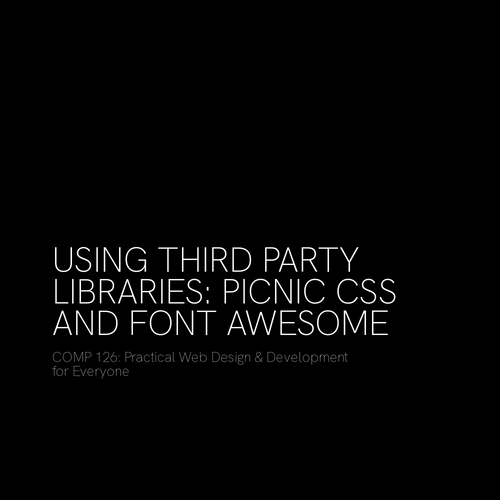A web for everyone: usability and accessibility for all
COMP 126: Practical Web Design &
Development for Everyone
what is "disability"?
"...a conflict between someone's functional capability and the world we have constructed..." (-Horton & quesenberry)
ability + barrier = disability
types of disability
- Hearing
- Vision
- Cognitive
- Ambulatory/motility
- Self-care
- Independent living
good design + Accessibility = inclusive design
disability in the us (2015 statistics; https://disabilitycompendium.org/)
- Around 2% of the American population has some kind of vision disability (i.e., are blind or have significant difficulty seeing, even with glasses)
- Around 50% of the population has some kind of clinically significant refractive error (a visual impairment which may be corrected with glasses if mild enough)
- Around 8% of males and 0.5% of females have some form of color vision deficiency
- Around 2% of adults have a hearing disability
- Over 4% have a cognitive disability (difficulty remembering, concentrating, or making decisions)
- Over 5% of adults between the ages of 18-64 have some sort of ambulatory disability; the number is nearly 23% for those over 65
Test your website for accessibility with the WebAIM checklist and Wave
important concepts: :FOCUS
- Everything should be accessible via the keyboard alone (no mouse/cursor)--ideally, even if the user can only access a single switch
- You can move focus around the page using TAB (forward through document) Shift-TAB (backward in document) and arrow keys (inside an element) [Note: in a Mac, you need to add the Option key to TAB, or go to System Preferences > Keyboards > Shortcuts and click All Controls]
- https://www.w3.org/TR/html5/editing.html#focus-management for specs
126-accessibility
By tkjn
126-accessibility
- 805



